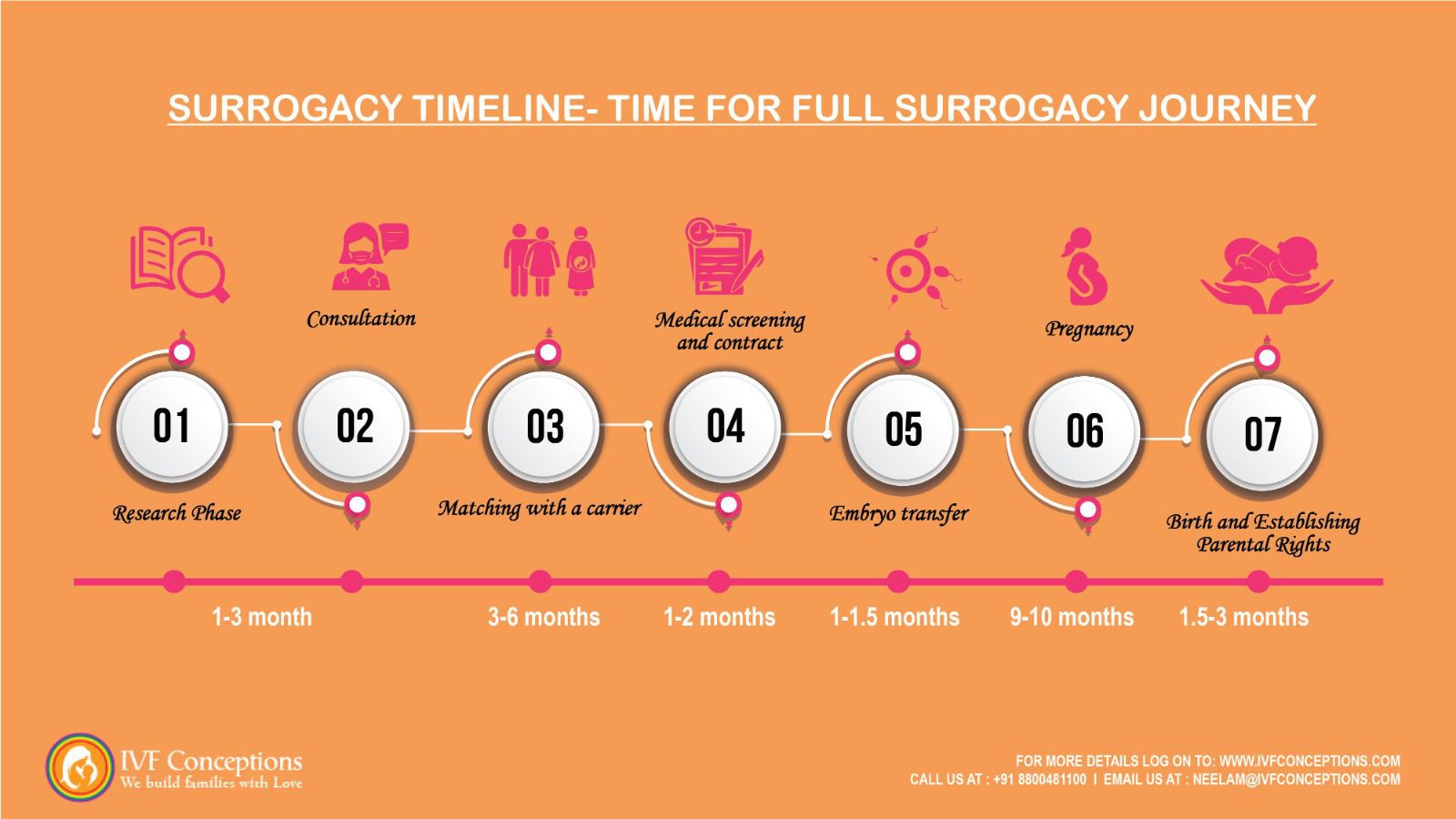What is IVF for Surrogacy: A Comprehensive Guide for Surrogate Mother Process

Since 2004, more than 75,000 babies have been born in the US through surrogacy. This shows how people choose IVF for surrogacy to build their families. With surrogacy, a gestational carrier carries the baby for you. This guide explains everything about the IVF for surrogacy process, including costs and the involved agencies.
Surrogacy means one person carries a baby for another. There are two types of surrogates. Gestational carrier surrogacy uses a woman not related to the baby genetically. In traditional surrogacy, the surrogate provides the egg.
IVF for surrogacy is great for those who can’t get pregnant for medical or personal reasons. This guide covers why you might choose IVF, the steps, how successful it is, the laws, and finding a surrogacy agency.
Key Takeaways for IVF surrogacy process
- IVF for surrogacy lets you have a child through a gestational carrier.
- It’s a good option for those with medical conditions or who can’t get pregnant.
- The process includes IVF, finding a surrogate, transferring embryos, and pregnancy.
- Surrogacy laws differ by state, so a good lawyer is important.
- Choosing a good surrogacy agency is key for support and advice.
Get in touch for a Free Surrogacy Consultancy:
📲 +91-8800481100 ( WhatsApp, Line, Viber)
Understanding Surrogacy: Traditional vs. Gestational
There are two main types of surrogacy: traditional and gestational. It’s important for intended parents exploring IVF for surrogacy to know the differences.
Traditional Surrogacy
In traditional surrogacy, the surrogate uses her own egg. Because of this, she is biologically connected to the child she carries. This method is less used today because of complex legal and emotional issues. The surrogate’s biological link can cause legal problems and emotional bonds that might affect everyone’s rights.
Gestational Surrogacy
Gestational surrogacy is when a woman, or gestational carrier, carries the child for others. The baby’s genetic material can be from the intended parents or donors. But, the surrogate herself is not related to the child. This makes legal and emotional matters easier, making it a common choice for many intended parents.
Additional guide for International Surrogacy Countries.
https://www.ivfconceptions.com/surrogacy-in-india/
https://www.ivfconceptions.com/surrogacy-in-ukraine/
https://www.ivfconceptions.com/surrogacy-in-georgia/
https://www.ivfconceptions.com/surrogacy-in-mexico/
https://www.ivfconceptions.com/surrogacy-in-usa/
https://www.ivfconceptions.com/surrogacy-in-colombia/
https://www.ivfconceptions.com/surrogacy-in-laos/

Reasons to Consider IVF Surrogacy with donor/wihtout donor
Surrogacy is a great choice for those who face hurdles in having a child. It lets people with special challenges become parents. This includes medical issues that make carrying a baby risky or impossible. It’s also an option for single parents or same-sex couples wanting a child biologically linked to them.
- Medical Conditions Preventing Pregnancy
Some people, like those with hard-to-treat infertility or past surgeries, might not carry a baby. If doctors say it’s too risky for you to be pregnant, surrogacy could be the answer. It allows you to work with a gestational carrier in vitro fertilization (IVF) to have a baby who shares your genes.
- Single Parenthood or Same-Sex Couples
Surrogacy is a path to parenthood for single and same-sex parents. By using donated eggs or sperm and a gestational carrier, they can have a child biologically theirs. It helps them achieve their dream of a family.
- Unexplained Infertility or Multiple Miscarriages
If carrying a baby is too hard because of unexplained infertility or many miscarriages, surrogacy might help. It allows you to find a gestational carrier. This carrier can carry and deliver a baby safely for you.
IVF for surrogacy is a hope for many who can’t carry a baby. It’s a way to have a child sharing your genes. Knowing these facts can help you decide if surrogacy is the best choice for your family.

The IVF for Surrogacy Process
The first step in IVF for surrogacy is creating embryos. The person giving the egg will take hormones to grow multiple eggs. They are then collected and mixed with sperm to make embryos in a lab. These embryos might be frozen and tested with preimplantation genetic testing for aneuploidy (PGT-A).
Step 2: Finding a Surrogate
Finding a surrogate might take from six months to a year. Surrogates could be someone you know or from an agency. Most intended parents choose an agency to help. The agency screens surrogates and helps match them with parents.
Step 3: Matching with Your Surrogate
When matched, parents and surrogates should match on health, pregnancy history, and where they live. They might also discuss if they want to stay in touch after the birth.
Step 4: Embryo Transfer and Pregnancy
The embryo transfer is like that in IVF. The surrogate readies her womb with estrogen and progesterone. Then the embryo is gently placed inside using a special tube.
Step 5: Prenatal Care and Delivery
If the pregnancy test is positive, the clinic will watch the surrogate until she reaches 8 to 10 weeks. Then her local obstetrician will take over her care. The surrogate will keep up her prenatal care until she gives birth.
IVF for Surrogacy Success Rates
Gestational surrogacy often leads to successful and healthy births. Adding
Preimplantation Genetic Testing (PGT)
to the mix improves these results, ensuring only the healthiest embryos are chosen.
PGT is critical in gestational surrogacy. It finds any embryo issues before the transfer. This process raises the chance of a successful birth with a healthy baby.
A recent study showed that with PGT, the birth success rate reaches 70-80%. This is a lot better than traditional IVF, which averages 30-40%.
Using gestational surrogacy and PGT lets parents have a genetic link to their child. It also makes surrogacy safer. By teaming up with top fertility experts and a trusted surrogacy agency, you can move forward confidently. This way, you get closer to growing your family.

Surrogacy Laws and Legal Considerations
Dealing with in vitro fertilization (IVF) for surrogacy brings up many legal issues. Intended parents, as well as surrogates, should take advice from skilled reproductive attorneys. These legal experts know the details of assisted reproduction and third-party reproduction . They an guide you through surrogacy contracts, varying state laws, and the steps to ensure your parental rights.
Surrogacy Contracts
Having a solid surrogacy contract is key. It makes sure the intended parents legally become the child’s parents, even though the baby is born to a surrogate. These documents cover who does what, who gets paid, and what happens after the birth.
Varying State Laws
The legal scene for surrogacy differs a lot by state. Some places have clear surrogacy laws. Others may be less clear. It’s vital to find a lawyer who knows the laws in your state. This is to smoothly go through the process correctly.
Establishing Parental Rights
Getting the intended parents‘ rights legally set is very important. Usually, this involves going to court. The goal is to use pre-birth orders or post-birth adoptions.
These steps make sure the intended parents end up as the legal parents. This happens even though the baby is carried by a surrogate.
Finding the Right Surrogacy Agency for IVF surrogacy with donor
Embarking on your ivf for surrogacy journey is a big step. It’s important to choose a surrogacy agency wisely. A good one will carefully check potential gestational carriers. This ensures they are fit to carry a healthy pregnancy. The agency helps you find the right surrogate match, making the process smoother.
Agency Screening and Matching Process
A reliable surrogacy agency will thoroughly screen surrogate applicants. They check their medical background, mental health, and pregnancy history. This way, the matched surrogate is not just physically fit but also ready emotionally. They listen to what you’re looking for in a surrogate, like age and location, and if you want a future relationship.
Support and Guidance throughout the Journey
Dealing with the legal, financial, and emotional sides of surrogacy can be hard. A good agency offers support for both you and the surrogate. They link you with experts like fertility doctors, lawyers, and therapists to make everything go smoothly. Plus, they make sure everyone talks openly and solves any issues together.
Conclusion
IVF for surrogacy is now well-liked and helpful for many people who want a child. It lets those who can’t get pregnant have a baby that’s their own genetically. This choice lets you have a child through a detailed process that includes costs and legal steps. Reputable surrogacy agencies offer crucial help.
This route includes hard medical, legal, and emotional steps. But, with experts by your side, you can tackle these issues and fulfill your family’s dreams. It’s important to always consider everyone’s health and happiness, especially the surrogate’s.
Choosing IVF surrogacy means doing solid research, asking lots of questions, and learning from others’ experiences. Good planning, strong support, and being fully committed ensure success. This journey may change your life, bringing the family you’ve longed for.
About IVF Conceptions: Your Trusted Partner in International Surrogacy
At IVF Conceptions, we bring over 15 years of experience in the fertility and international surrogacy domain, providing trusted guidance to more than 4,000 intended parents across the globe. We specialize in offering secure, legal, and affordable surrogacy solutions tailored to the unique needs of all family types—single parents, gay couples, and heterosexual couples alike.
Our team is led by experts with extensive experience in holistic infertility consulting and third-party reproduction. We are proud members of leading industry organizations such as the European Fertility Society (EFS) and the European Society of Human Reproduction and Embryology (ESHRE), ensuring that our practices align with the highest ethical and professional standards.
Committed to empowering intended parents with accurate, up-to-date, and compassionate guidance, IVF Conceptions stands as a beacon of trustworthiness, expertise, and authority in the surrogacy field. Through our meticulous approach and unwavering dedication, we aim to help families grow with integrity, care, and love.
Get in touch for a Free Surrogacy Consultancy for IVF surrogacy cost in different countries :
+91-8800481100 ( WhatsApp, Line, Viber)
FAQs for IVF egg donor surrogacy cost
 What is IVF for surrogacy?
What is IVF for surrogacy?
IVF for surrogacy helps you have a baby through a gestational carrier. This detailed guide covers everything you need to know. It includes costs, laws, and the agencies you’ll work with.
What are the different types of surrogacy?
Two types of surrogacy exist. They are gestational carriers and traditional surrogacy. In gestational carrier surrogacy, the woman is not related to the child. In traditional surrogacy, the surrogate provides the egg and is related to the child.
When is surrogacy considered?
Surrogacy is an option recommended by doctors in several cases. It’s suggested that carrying a baby could be unsafe due to health issues. It’s also a choice for those struggling with infertility or after facing multiple miscarriages. Surrogacy can also help single individuals or same-sex couples in having a child.
What are the steps in the IVF for surrogacy process?
There are several steps in the IVF for surrogacy process. Firstly, embryos are created with IVF. Then, a suitable surrogate is found. After finding a match, there’s an embryo transfer. Finally, surrogacy includes prenatal care and ends with the delivery.
What are the success rates for IVF surrogacy?
Success rates for gestational surrogacy are generally high. Using preimplantation genetic testing (PGT) can even increase the chance of success. This is because it helps select the healthiest embryos for transfer.
What are the legal considerations for surrogacy?
To make sure the intended parents are the legal guardians, surrogacy contracts and legal processes are essential. The laws around surrogacy vary by state. Working with a skilled reproductive attorney is crucial to navigate these laws.
How do I find the right surrogacy agency?
Choosing the right surrogacy agency is important. A good agency screens surrogates carefully. They also support both the intended parents and the surrogate throughout the experience. This means ensuring everyone is well-informed and comfortable throughout the process.
Source Links

